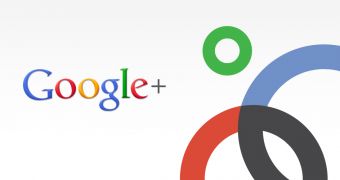Even at relatively open companies, most people keep their opinions to themselves. If they work at a company with a healthy culture, they may even be able to criticize it internally. But no one is going to be posting 4,500-word rants filed with honest but rather brutal analysis of what the company does wrong, publicly. Unless they do it by mistake.
Which is exactly what Googler Steve Yegge did when a Google+ post he intended to be for Googlers only ended up being public on the web.
And that turned out to be a pretty good thing, since he had quite a lot of interesting things to say. Most people focused on the most inflammatory stuff, much of it being directed at Google+ itself, but the post is an encouragement as much as anything else.
"Google+ is a knee-jerk reaction, a study in short-term thinking, predicated on the incorrect notion that Facebook is successful because they built a great product," he said at one point.
"The Google+ platform is a pathetic afterthought. We had no API at all at launch, and last I checked, we had one measly API call," he added.
The post has now been removed and Yegge offered an explanation of what happened, but it has since been shared and reposted on Google+ and elsewhere.
While some of the things in the post make for great headlines, it was actually designed to help Google understand what it's doing wrong, at least in Yegge's opinion.
The main argument is that Google doesn't understand platforms. It builds great products, but that's what the company focuses on, not on making them available to external developers or even to other product teams internally.
This, in Yegge's mind, is a great big flaw at Google and it's something that Amazon, where he has worked for six years, Microsoft and even Facebook have gotten right or, at least, are trying to.
He describes how, almost a decade ago, Amazon boss Jeff Bezos, for whom Yegge doesn't have the nicest of words, realized that a platform was a must and forced every team at the company to redesign whatever they were working on as a service, accessible to any other internal team and which could easily be externalized without any big changes.
Even Facebook, he says, owns much of it success to the platform. He argues that Facebook itself, the site that millions of people use, is the most successful product on the platform, but it's the platform that enabled it to be so.
Google on the other hand does not get platforms. Google+ is the prime example of that, Yegge says. The simple fact that it launched without any API should be testament to it.
What's more, the games that have been developed so far for Google+ have been done with access to internal resources and not through an open API. Google is now struggling to bolt on a platform on top of Google+, but it should have been the other way around.
While Google has been trying to replicate and better Facebook features, Facebook was working on the new Open Graph API it revealed at this year's f8 conference. The new Open Graph, in essence, is the ultimate platform, it's designed to be built into and enhance anything online, seamlessly.
In the end, Yegge believes that Google has a chance to redeem itself and that it's not too late to fix things. There are people and teams at the company that do understand the need for a platform, but they are a minority. After all, the Facebook platform was built some three years after Facebook started.

 14 DAY TRIAL //
14 DAY TRIAL //